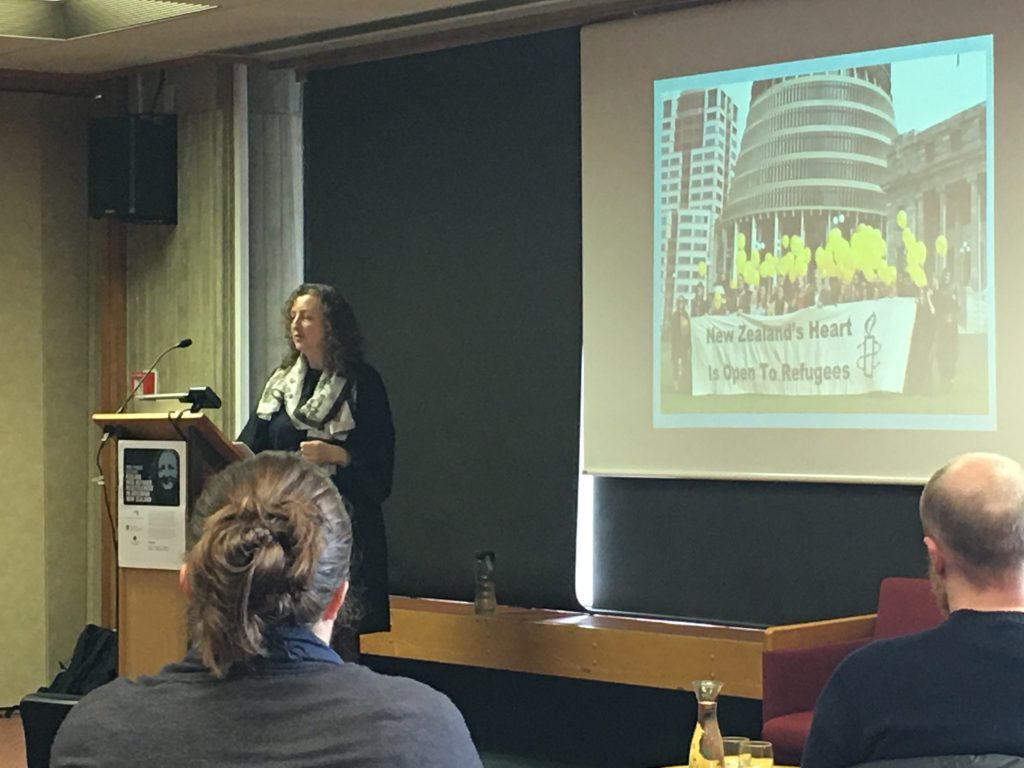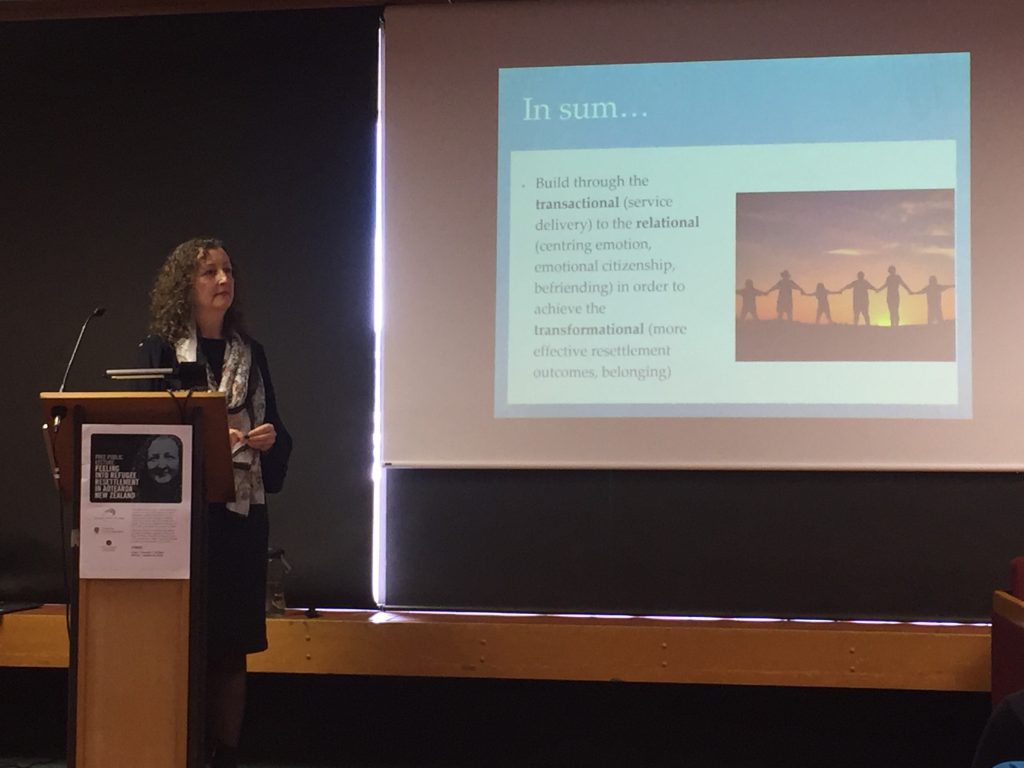Report by Neil Vallelly
“Emotion is everywhere and nowhere in refugee resettlement” argued the Centre for Global Migrations Visiting Scholar Professor Sara Kindon in this well-attended public talk at Dunedin Public Library. Professor Kindon’s point here was that while resettlement is unsurprisingly an emotional process, a whole host of emotions are often disregarded in the resettlement process. In particular, western conceptions of emotions as individual, internal, and pathological often supersede the social and cultural understandings of emotions that refugees possess, especially in terms of trauma. The trope of the traumatised refugee, Kindon observed, leads to an over-medicalisation of emotion in refugee resettlement, which negates the potential for refugees to draw on their own social and cultural practices in dealing with trauma. Furthermore, the resettlement process initially ties refugees to the state, mediated by NGOs and service providers, which produces a top-down and outside-in approach to resettlement, where governments decide priorities and apply these to lives of refugees.
Drawing on emotional geography, affect theory, and her decades of experience of working in refugee resettlement, Kindon asked us to imagine how we might re-think resettlement by placing emotion at the centre of the process. By working from the inside out, Kindon put forward a new strategy that focuses on building a sense of belonging, community, and inclusion for newly-settled refugees, where not only do they feel wanted and welcome but also feel like their knowledge and skills can contribute to shaping Aotearoa New Zealand society. By putting “feeling into resettlement”, Kindon imagined a future in which the governmental and non-governmental agencies involved in refugee resettlement can move beyond the limited and distant approach to emotion that presently dominates western societies. In doing so, these agencies can make space for the emotional worlds of refugees, the role of space and place in their emotions, and the ways in which emotion is produced in the interrelation of bodies. In many ways, Kindon not only posited a new approach to refugee resettlement, but a framework for re-imagining contemporary society in ways that allow emotions to be constantly in flux rather than fixed and instrumentalised. In doing so, Kindon urged us to keep emotions everywhere in order to stop them dissolving into nowhere, as is so often the case when emotions are medicalised and pathologised. This is a valuable lesson for all of us, no matter which field we work in.



